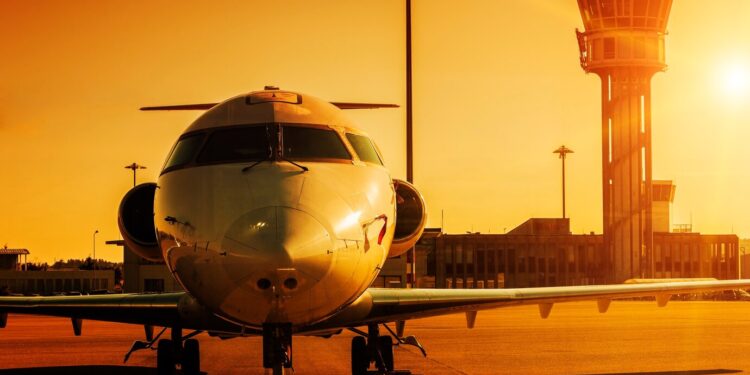More than 200 passengers travelling on Virgin Atlantic’s flight from London to Mumbai faced an unexpected 40-hour ordeal after the aircraft was forced to make an emergency landing in Erzurum, Turkey due to a technical snag. The flight, originally scheduled as VS354, is now set to resume its journey, with passengers and crew expected to depart later today.
The incident sparked widespread concern, with many passengers sharing stories of confusion, discomfort, and limited support during their unplanned layover at a remote airport not equipped to handle international transit passengers for extended periods.
Emergency Diversion and Unexpected Stop
The aircraft, a Boeing 787-9 Dreamliner, departed from London Heathrow on its scheduled route to Mumbai. A few hours into the flight, a technical issue was detected by the crew. Out of caution and in line with safety procedures, the pilots diverted the aircraft to Erzurum Airport, located in eastern Turkey.
Though the landing was smooth and no injuries were reported, the situation quickly became complex. Erzurum is a regional airport with no direct international departure facilities for long-haul flights, and many passengers found themselves stuck in transit limbo with limited support and unclear communication.
Passengers Describe ‘Distressing’ Conditions
Several passengers who spoke to the media or posted on social media platforms described the experience as distressing. With few staff speaking English and no infrastructure to manage an international crowd of over 200 people, passengers reportedly struggled with basic needs, including food, accommodation, and information.
Many were left waiting at the airport terminal for hours before being offered any clarity about what would happen next. Some elderly passengers and those travelling with children or medical conditions found the situation especially taxing.
One passenger wrote on X (formerly Twitter), “We’re in a remote Turkish airport for over 24 hours now. No proper updates. No hotels for the first night. There are kids and elderly people here. This is inhumane.”
Virgin Atlantic’s Official Response
Virgin Atlantic issued a public statement acknowledging the disruption and apologising to passengers for the inconvenience. The airline confirmed that a technical fault had prompted the emergency landing, and engineers had been sent to Turkey to assess and repair the aircraft.
“We’d like to sincerely apologise to our customers for the significant disruption to their journey. The safety and wellbeing of our customers and crew is always our top priority,” the airline said.
“We’re working as quickly as possible to resume the journey to Mumbai and support our customers during this time.”
The airline also noted that local authorities were involved in helping manage the situation, and efforts were being made to secure food, accommodation, and visa permissions where needed.
Visa Challenges and Ground Support
One of the primary challenges faced by passengers was the lack of transit facilities and visa access in Erzurum. Since Turkey requires most Indian nationals to hold a visa, passengers could not legally leave the airport until special permissions were secured.
This further compounded the discomfort, as many were initially forced to wait inside the aircraft or terminal with limited services. Only after intervention from local immigration authorities and coordination between Virgin Atlantic and Turkish officials were some passengers allowed to access temporary accommodation.
For others, especially those without medical needs or urgent requirements, hotel access came much later—adding to the frustration.

Indian Authorities Step In
The Indian Embassy in Turkey was informed of the incident and provided assistance. Embassy officials reportedly liaised with Turkish authorities and Virgin Atlantic to ensure the safety and welfare of stranded Indian nationals.
A statement issued by the consulate expressed concern over the delay and confirmed that they were in contact with both the airline and local officials to facilitate hotel stays and onward movement.
Flight Expected to Resume Journey
Virgin Atlantic has since confirmed that technical repairs have been completed, and necessary clearances have been obtained. The aircraft is expected to take off from Erzurum to Mumbai later today, bringing an end to the ordeal.
Passengers, while relieved, are now seeking answers about compensation, reimbursement, and the handling of the incident. Many say they were left without adequate updates for hours and had to rely on social media for developments.
Will Passengers Be Compensated?
Under UK and EU passenger rights regulations, travellers on flights departing from the UK that are delayed for long durations may be entitled to compensation—unless the delay is due to extraordinary circumstances.
A technical fault may not always qualify as an exemption, and Virgin Atlantic has indicated it will review claims on a case-by-case basis.
Affected passengers are being advised to retain boarding passes, receipts, and records of communication, and to file formal complaints through the airline’s support portal.
Lessons in Crisis Communication
While the emergency diversion was taken in the interest of passenger safety, the handling of events that followed has raised questions about how well-equipped airlines are to manage emergencies at non-hub airports.
Industry experts noted that remote diversion airports often lack support infrastructure, language capabilities, and accommodation facilities to manage such disruptions—making strong airline response and clear communication all the more important.
Airlines operating long-haul routes through diverse airspaces are now being urged to reassess their emergency protocols, especially in cases where diversions may occur in locations without immigration agreements or visa-free access for international passengers.
A Long Journey Ends—But Questions Remain
As the Virgin Atlantic flight prepares to depart Erzurum and continue its journey to Mumbai, over 200 passengers are finally inching closer to their destination. But for many, the ordeal will leave lasting memories, and possibly impact how they view long-haul air travel in the future.
While the airline acted swiftly to prioritise safety, the experience has highlighted the need for faster crisis response, better multilingual communication, and more proactive support, particularly in emergency situations far from global travel hubs.
What started as a routine flight from London to Mumbai turned into a 40-hour test of patience, endurance, and coordination for over 200 passengers. As the aircraft takes to the skies again, Virgin Atlantic and the wider aviation industry are left with valuable lessons on managing mid-air diversions, passenger welfare, and international crisis logistics in an increasingly interconnected world.
For the stranded passengers, today marks not just the end of a long delay—but the hope of finally reaching home.










